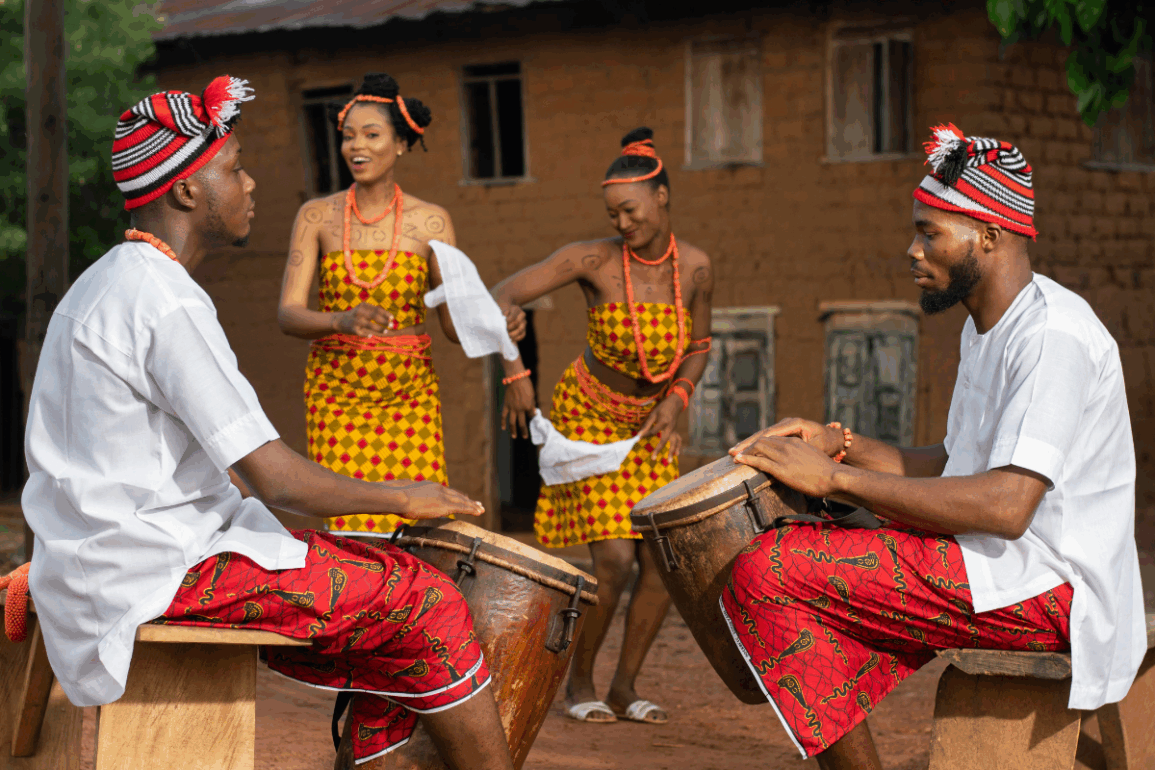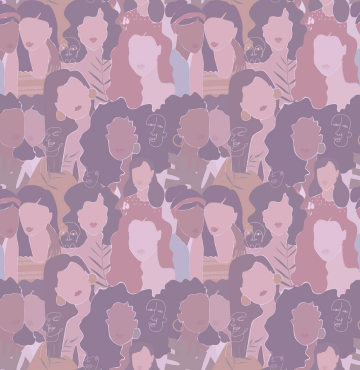One thing I preach to Black entrepreneurs, aspiring or established; regardless of ethnicity, region, or background is: “Gentrify your culture.”
At first, people pause. The word gentrify isn’t usually used in this context. But that’s the point. I piggyback it with: “If anyone is going to profit off what’s native to you and your community… why not you?”
Globally, Black people have been exploited for centuries. If it’s not our bodies, it’s our brilliance: our fashion, our hair, our food, our sound, our land. Things created by Black hands and communities find their way into the hands of outsiders, rebranded and resold to the masses for billions of dollars. Even the smallest, most random elements we take for granted, like shea butter or chewing sticks, show up on Amazon with fancy labels, new names, and price tags divorced from the people who’ve used them for generations.
We are the blueprint. So why do we keep selling the rights to our story?
One of my favorite sweatshirts reads, “Ghetto Until Proven Fashionable.”
Does that not sum up the Black experience? Wherever Black people are, we’re often seen as too loud, too much, too rough, too barbaric, too “uncultured”… until someone else, usually white, discovers an ancient practice from one of our cultures, tries it for themselves, sees the value, and decides to colonize it.
Suddenly, the very things we were criticized, harassed, tormented, even discriminated for become “cool.” Innovative. Timeless. World-shattering. But only once they say so. It would almost be comical if it weren’t so pervasive.
Honestly, it’s embarrassing to admit now, but I didn’t know Black people invented jazz until I was well into adulthood. As an adolescent, the only jazz artist I’d heard of was Kenny G. That’s what cultural erasure looks like in real time. The colonization of Black brilliance comes with a displacement and erasure so deep, it leaves us at a historical, cultural, and especially financial disadvantage.
So again, I say it:
Gentrify your culture.
Don’t wait for someone to discover your traditional beauty treatment or signature food, validate it, and then export it to the world while you stand on the sidelines. And yes, I’m calling on Black people specifically. Because many other ethnic groups already do this incredibly well.
Think about it; despite their cultural differences, many Asian communities have found ways to export their food, fashion, skincare, spiritual practices, and home decor on their terms. Not only have they built cultural empires from within, they’ve gained financial real estate exporting other people’s cultures, too.
I see it in Latino and Hispanic communities as well. They create businesses by them, but that are consumed globally. Just like their Asian counterparts, they’ve mastered it to the point that they now lead conversations and industries that serve audiences outside of their community.
This isn’t shade, I genuinely admire the blueprint.
But let’s be honest: That success often leads to the disenfranchisement of Black people.
Because when others become gatekeepers of what originated with us, we find ourselves having to ask for access to things that belong to us. That is how powerful Black brilliance is. People get so possessive over what we created…they feel offended when we dare to participate as owners.
Recently, Nigerian fashion designers have been called out for their “exorbitant” prices. I’ve seen some of those price tags in both naira and dollars and paused for a moment myself. But you’ll never catch me joining that bandwagon. African fashion has always been luxury.
Handmade. Custom. One of a kind pieces, crafted with precision. We just weren’t allowed to call it “luxury” because we weren’t sitting at the tables that decided what luxury looked like.
Nigerian designers didn’t suddenly become brilliant five years ago. They’ve always been top tier in innovation, in styling, in design philosophy. It’s just that now, the world is finally catching on to what we’ve always known. So if they want to take their seat among European fashion houses, many of whom have a long history of being “inspired” by African aesthetics without giving credit? Why shouldn’t they sit there? Our predecessors earned that seat with stitches, sketches, and sheer genius. Simultaneously, it does not mean the cultural nuances of have your personal tailor are lost just because those fashion brands win.
But even if you’re not selling $2,000 garments off the runway…
That thing you use to cleanse your body.
That food native to your tribe.
That natural moisturizer your village auntie uses on her skin.
It is gold.
Just because it hasn’t been priced like luxury yet doesn’t mean it isn’t worthy of honor, protection, elevation, or consumption.
Do not wait to be put on the table, because that is not an invitation. That’s a signal they plan to consume you, not empower you. They’ll eat from your culture, profit off your genius, and never offer you a seat.
So build your own tables. And make them pay to even observe what is happening there.




